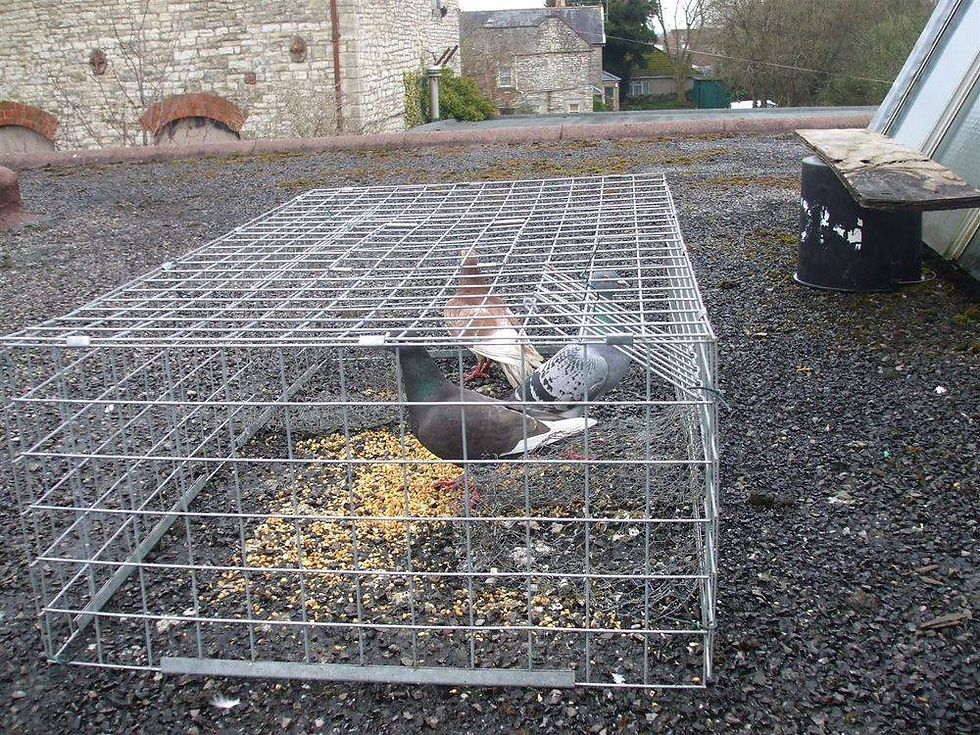





The Pests - Feral Pigeons (Columba Livia) are found throughout Britain and worldwide, they are closely associated with humans and are a common sight in urban environments.
Feral Pigeons are descended from domesticated strains of the Rock Dove and the wild population is supplemented by escapees from pigeon lofts and wayward racing birds. The plumage can vary considerably from blue-grey (similar to the original Rock Dove), through various "blues", "reds" and chequered types to pure black and pure white. There is little visible difference between the sexes.

Pigeon nests are flimsy affairs, often stuck together with droppings which block gutters & cause slip hazards in cities such as Bath and Bristol.
The birds build their nests in or on buildings, usually on ledges or in hollows and often under eaves or on girders. The nests are often quite flimsy affairs made up of grass, twigs, straw, feathers and any scraps of rubbish they can find. Breeding can occur in any month of the year but the peak is between March and July. Usually 2 eggs are laid with incubation taking 18 days and fledging a further 4 1/2 weeks . Up to nine broods can be produced in any one year.

Young pigeons are called squabs. Barron Pest Control Bath.
Much of the damage caused by pigeons arises from their infestation of buildings and their fouling in areas where they nest and roost, which is not only unsightly but the acid in the droppings can erode the stonework. Gutters and drainpipes can become clogged with droppings leading to flooding; and pavements, ladders and fire escapes can get very slippery with a coating of guano. Pigeons can also transmit diseases such as Ornithosis and Salmonella.

Cage traps can be used effectively against small populations of pigeons. Like these taken in Bath by Barron Pest Control.
Cage traps can be used quite effectively on small populations of birds and any reluctant to enter the traps at the end of a trapping programme can be shot with an appropriate weapon (usually a .22 air rifle is my choice).
Food and shelter are the most important factors determining the size of a pigeon flock and restricting the food availability along with a programme of proofing measures is the best long term solution to keep pigeons off or out of certain areas.
For advice on "Pigeon Problems",
Tel. 01761 233 597
or
Mob. 07749 896 541
pest control Bath, pest control Radstock, pest control Midsomer Norton, pest control Wells, pest control Frome, pest control Shepton Mallet, pest control Trowbridge, pest control Bradford on Avon, pest control Mendips, pest control Somerset, pest control Chew Valley, wasp nest removal Bath, mole trapping Somerset
